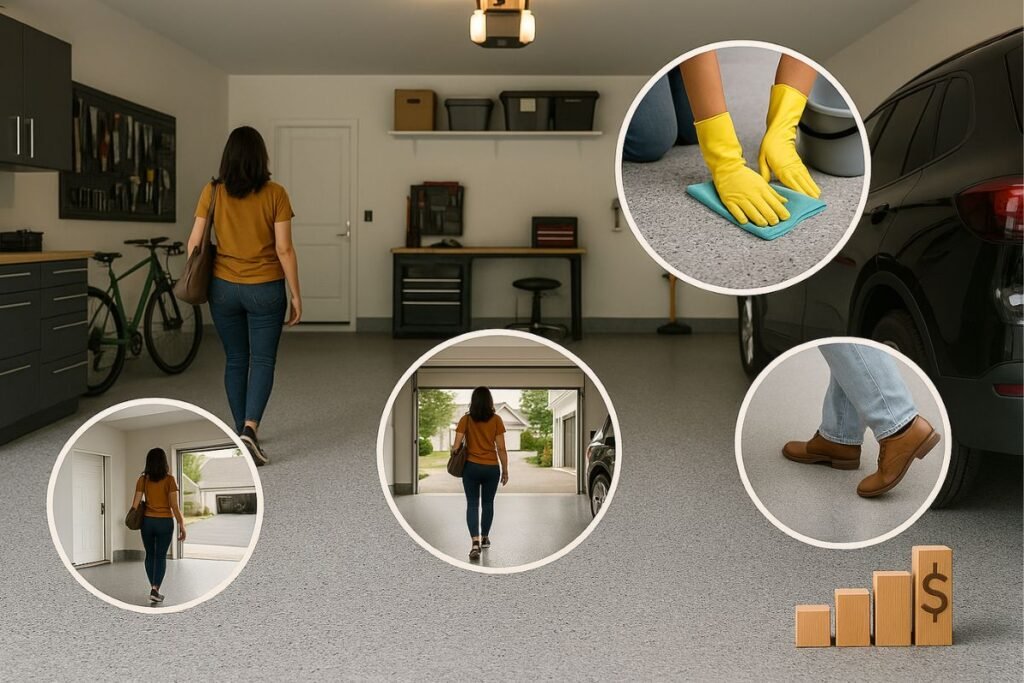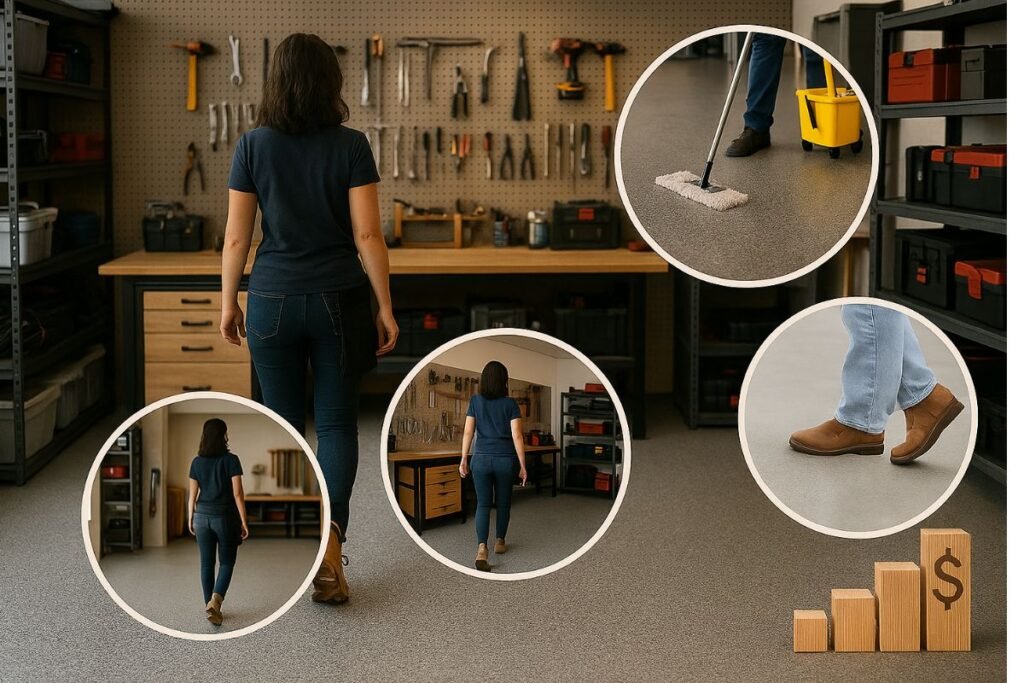When choosing commercial flooring for a business or office space, it’s crucial to consider several key factors fort commercial flooring that will affect both the functionality and aesthetic of the environment for the floor. The right flooring can enhance the work environment, improve safety, and even impact the overall productivity of employees. Below are five essential factors to keep in mind when selecting commercial flooring.
1. Durability

Commercial spaces experience high foot traffic, making durability one of the most critical factors when selecting commercial flooring. A floor that wears down quickly can lead to costly repairs or replacements and create a negative impression on clients and employees.
- Vinyl Flooring: Vinyl floor is known for its resilience and scratch resistance; vinyl flooring is an excellent option for high-traffic areas. It’s durable, water-resistant, and easy to maintain.
- Concrete: Polished concrete floor is extremely durable and can withstand heavy foot traffic and machinery.
- Tile and Ceramic: Tiles are durable and easy to clean, making them a common choice for restaurants, retail spaces, and bathrooms.
- Epoxy Flooring: Epoxy floors provide a seamless, strong, and chemical-resistant surface, perfect for commercial and industrial environments that require durability and easy maintenance.
Make sure to assess the traffic volume and potential wear and tear before making a decision.
2. Maintenance Requirements
When choosing commercial flooring, it’s important to think about long-term maintenance. Some floors require frequent cleaning or specialized care to maintain their appearance and functionality.
- Carpet: While cozy and sound-absorbing, carpet requires regular vacuuming, deep cleaning, and sometimes even professional cleaning. It’s essential to choose commercial-grade carpet with stain-resistant treatments if you opt for this type of flooring.
- Luxury Vinyl Planks (LVP): Luxury vinyl planks are easy to clean and resistant to stains, making them a low-maintenance choice for busy businesses.
- Linoleum: It is naturally antimicrobial and requires minimal maintenance for making eco-friendly and low-maintenance option.
Choosing a flooring material that aligns with the maintenance capacity of your business can save you time, effort, and money in the long run.
3. Safety and Slip Resistance
Safety should always be one of the priorities in any commercial environment. Floors can become slippery when wet, leading to accidents and potential liability issues in the future.
- Rubber Flooring: Rubber floors are slip-resistant and often used in gyms, healthcare facilities, and educational institutions.
- Textured Vinyl: Vinyl with added texture can help provide a firm grip and reduce slipping in high-moisture environments like kitchens or restrooms.
- Carpet Tiles: Carpet tiles can provide a cushion against falls, reducing the risk of injury.
When selecting commercial flooring, ensure the material offers enough grip and support to reduce the risk of accidents, especially in areas prone to moisture.
4. Aesthetic Appeal

The aesthetic appeal of your flooring can set the tone for your business in many ways. The right flooring material can enhance your space’s appearance and contribute to your brand identity. Whether your business is formal, casual, creative, or innovative, the aesthetics of the flooring can reflect your company’s values and culture.
- Wood-Look Vinyl: Offers the warm, natural appeal of wood but with the durability and ease of maintenance of vinyl.
- Tile and Stone: Natural stone and high-end ceramic tiles add a luxurious touch to high-end businesses like retail boutiques or hotels.
- Patterned Carpet: Ideal for creative businesses like advertising agencies or tech companies, patterned carpet tiles can provide a unique look that reinforces brand personality.
Choose a flooring solution that matches your business’s character while maintaining practicality.
5. Budget and Cost-Effectiveness
Lastly, your flooring budget plays a significant role in choosing a quality floor. Commercial flooring options can range from very affordable to quite expensive, depending on the material, style, and installation complexity.
- Economical Options: Materials like vinyl, linoleum, or carpet tiles are generally more affordable and can provide excellent value for businesses on a tight budget.
- Mid-Range Options: Luxury vinyl plank or high-quality laminate can give a premium look without the high cost of natural wood or stone.
- High-End Options: Stone, hardwood, and polished concrete are at the top end of the price spectrum. While these are durable and aesthetically pleasing, they come with a higher upfront cost.
Always consider the total cost of the flooring — including installation and future maintenance — when determining which option fits best within your budget.
Conclusion
Selecting the right commercial flooring involves balancing durability, maintenance, safety, aesthetics, and cost. Each of these factors plays a crucial role in ensuring that your flooring not only meets functional requirements but also complements the image of your business. By considering all five key factors, you can make a more informed decision that will benefit your business for years to come.
